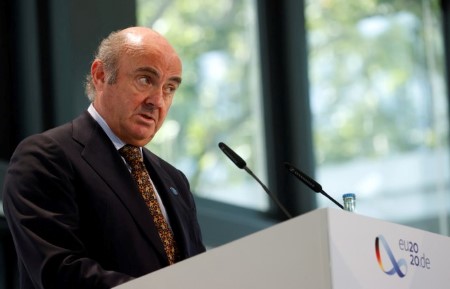




January Economic Update: Growth slows, prices rise
 DOWNLOAD
DOWNLOAD

Inflation Update: Up, up, and away?
 DOWNLOAD
DOWNLOAD

Quarterly Economic Growth Release: Growth takes on a slower pace
 DOWNLOAD
DOWNLOAD


ECB to start offloading debt to fight inflation

FRANKFURT, Dec 2 (Reuters) – The European Central Bank is all but certain to start offloading some of its 5 trillion euro (USD 5.3 trillion) bond stash next year as it ramps up efforts to bring down record-high inflation in the euro zone.
Along with a continuing streak of interest rate increases, it hopes so-called quantitative tightening, or QT, will raise borrowing costs and thereby slow demand for goods and services across the 19 countries that use the euro.
The policy shift will be historic, after the ECB spent nearly a decade doing the exact opposite via multiple stimulus programmes that kept the euro zone economy afloat through sequential crises.
It also poses a challenge to governments that have relied on the ECB as a major lender for years, particularly in the bloc’s indebted south.
The ECB will lay out the “key principles” of the QT program on Dec 15, with kick-off expected in the first few months of 2023.
Here are the main questions investors are asking about the ECB’s plans.
WHAT IS QT AND HOW IS IT SUPPOSED TO WORK?
At a general level, quantitative tightening is supposed to be a mirror image of the quantitative easing (QE) policies that have dominated the past decade.
Under QE, the ECB drove down borrowing costs by buying government bonds, hoping this would spur banks and other investors to put their money to more fruitful use, such as financing companies.
Through quantitative tightening, the ECB will mop up the liquidity created by QE by shedding its bond holdings.
This should raise the cost of money and cool credit and investment.
WHAT WOULD IT LOOK LIKE IN PRACTICE?
The ECB has hinted that it doesn’t plan to sell its bonds but will instead simply stop replacing some of those that mature, as the US Federal Reserve did when it started its own QT programme earlier this year.
The Fed said it would only reinvest proceeds from maturing bonds exceeding a certain monthly threshold.
WILL THE ECB SIMPLY COPY THE FED?
Probably not, as monthly redemptions from the ECB’s Asset Purchase Program range from 17.8 billion euros next August to 52.7 billion euros in October.
That means it might need to use a percentage of redemptions as its yardstick or smooth reinvestments across several months, as it has done in the past.
But ECB policymakers have been adamant that they want QT to be predictable and gradual, so don’t expect too much variation.
The idea is to put it on autopilot so that policymakers will not have to make regular decisions on the pace of redemptions, ensuring interest rates will remain their key tool.
HOW MUCH MONEY ARE WE TALKING ABOUT HERE?
The ECB bought 3.3 trillion euros worth of assets under APP, most of which are government bonds.
These have an average maturity of just over seven years and analysts expect the ECB to reduce its portfolio by only 15-20 billion euros per month on average. That means it will take the ECB a long time to run down its balance sheet if it doesn’t sell assets.
The ECB also has a separate Pandemic Emergency Purchase Programme, worth 1.7 trillion euros. It has said it will keep reinvesting proceeds from that scheme until the end of 2024.
WHAT DOES IT MEAN FOR BORROWERS?
The ECB has been a major buyer of government bonds since 2015. For some months at the height of the pandemic, it was buying more sovereign debt than countries were issuing.
This is set to change under QT, forcing euro zone governments – most of which are still running deficits – to raise money from private investors.
UniCredit estimates the market will need to absorb an additional 500 billion euros’ worth of euro zone government bonds next year, the biggest increase since 2010.
SHOULD WE EXPECT MARKET TURMOIL?
Markets seem to have already priced in some QT, with yields on government bonds across the euro zone climbing to multi-year highs in September before a pullback in recent weeks.
Germany’s 10-year bonds are currently yielding 1.8% compared to minus 0.4% a year ago while similar bonds for highly indebted Italy are at 3.7%.
But the ECB has already provided a safety net for these countries, in the form of a scheme that would let it buy unlimited amounts of their bonds if the market seized up.
(USD 1 = 0.9497 euros)
(Reporting by Francesco Canepa; Editing by Catherine Evans)
This article originally appeared on reuters.com





 By Reuters
By Reuters